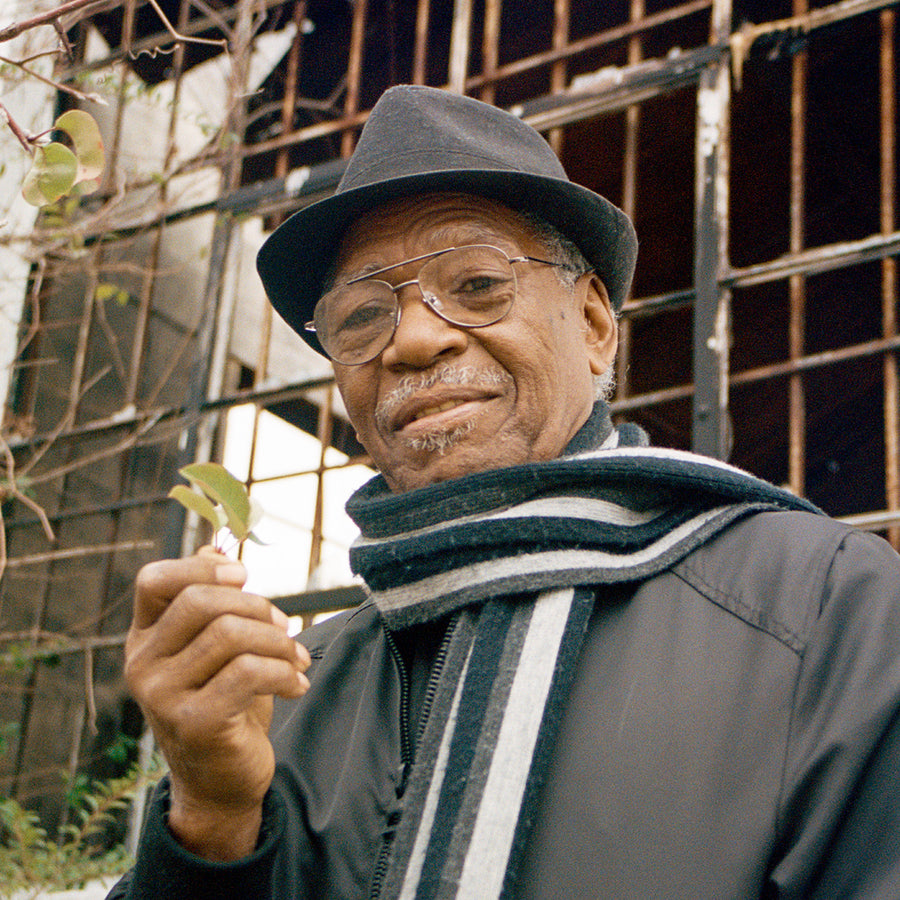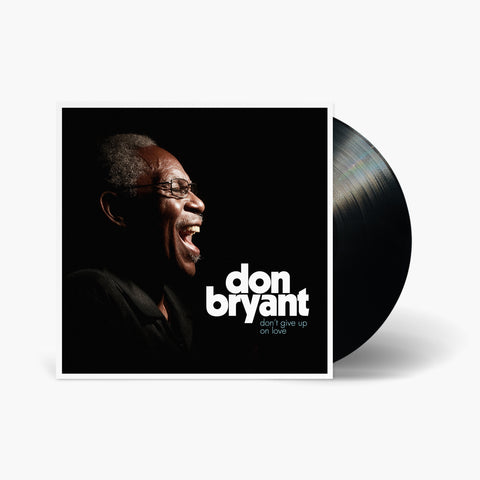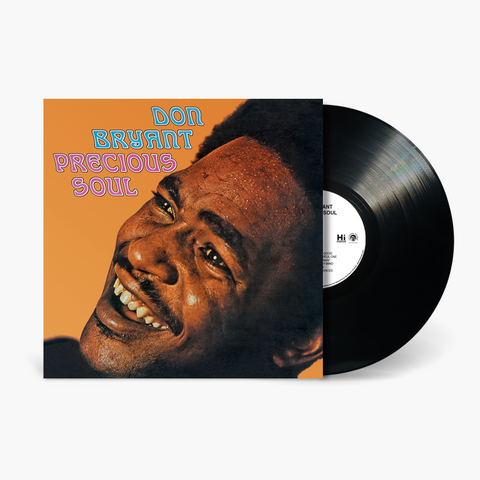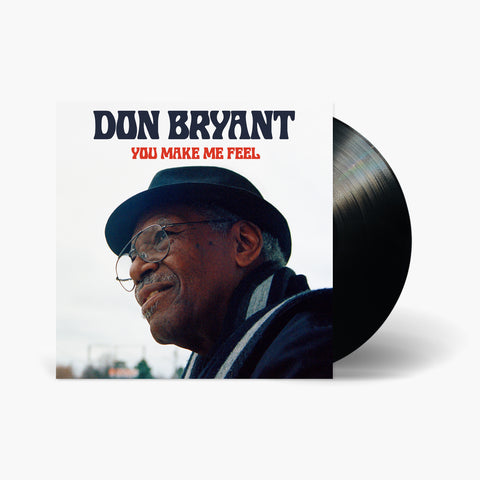Don Bryant
Contact

Bio
“My main thing is to tell a story,” says Don Bryant, songwriter and performer. “Taking an idea and making a full story out of it is a challenge to me. I go back to look at situations in my life, work the story in my head. And basically the story is, how did it start out? How did it turn out? Is this a part of what I was going through? If you can tap into things that people go through, then they want to listen.
“And it’s not always the bad parts of what they’re going through, sometimes it’s the good part.” His eyes glimmer. “My thing was love affairs.”
Don’s naturally attracted to a good story—because he’s lived one. In his three-act drama, he was just a kid singing gospel with his family who finds his way to the secular side. There, he moves from the mic to the pen, hitting the top of the 1974 charts with a song, “Can’t Stand the Rain,” sung by his wife, Ann Peebles. When she retires in 2012, he returns to the stage stronger than ever and conquers the globe. Don may be pushing 80 years of age, but he’s saved all his energy while away from the spotlight and now he’s blowing ’em kids off the stages.
This album is Don’s third. His first was in 1969 and titled Precious Soul. It was produced by Willie Mitchell and it has some great moments, but Don’s club set then was singing sound-alike cover versions of the era’s greatest hits, and on that album, Don almost sounds like a lot of other people and never really lets loose as himself.
At that time, Hi Records was undergoing a change. Willie Mitchell was assuming Hi’s power position, and he’d just heard a new vocalist, a petite lass visiting Memphis named Ann Peebles. A little lady with a big voice, she became Hi’s focus, taking Don’s lead position. He didn’t resent the spotlight’s move to her—he made an opportunity of it, shifting from a decade as lead vocalist to embracing songwriting. He’d sold his first song a decade earlier to the Five Royales, and he’d developed a respectable catalog. Songwriting suited him.
If you turn your ears a certain way, You Make Me Feel can be heard as a love letter to a marriage now approaching 50 years. That killer horn riff that kicks off the album? Think of it as a fanfare preceding the reading of a royal decree; or maybe it’s a funky version of a wedding march. Titled “Your Love Is to Blame,” it’s got the chorus of a good blues song: “Nothing in my life is the same/Your love is to blame.” But here, “blame” gets a halo. “I tried to turn this one around,” Don says with a slight grin. Then he explains, “Your love is to blame because we are together!” The verses are like a lost psalm from King David:
You give me love instead of promises
You give me truth instead of lies
You give me light when there is darkness
You give me sunshine instead of cloudy skies
Then, to make it clear who he’s talking about, Don reprises the song he wrote for Ann soon after she arrived at Hi. “At the time she arrived, I was the recording artist who people were working with. But when she came in and did her first song, I knew all the attention was going to shift to her,” he recalls, “so I concentrated on writing material.” That concentration was motivated by a little something extra: “I fell in love with Ann when she first came in to Hi,” he reveals. “But there was so much going on with her—recording, travel, so many around her—it wasn’t my time. And I wasn’t in no hurry—I knew I wasn’t going nowhere! We got to know each other better and better and it opened up. It was a long drawn out situation, but for me it was love at first sight.”
He got her attention by considering what could be a signature song for the rising star. “Ann was 99 pounds when she started at Hi. I’d always listen to the artists and come up with some things that would fit what they’d already done. I got the idea that ‘99 Lbs’ would be a good ID song for her.” A good idea, it became a good song and led to good things.
“We began to start working together, writing together,” Don continues. “Writing was a big help, gave us more time together, helped us understand each other. I felt the love coming but wasn’t in no hurry to rush it. Eventually it just developed and—whoo!” Don wrote “99 Lbs,” but he recorded this version “to put some light on her,” he demurs. Wherever the light was going, he didn’t hold back. There’s a punch to this new version that would make Willie Mitchell proud—classic soul with a 21st century power.
In any relationship there’s doubt, and Don doesn’t shy from the darker feelings. “Is It Over” sounds like it might date to 1973 when Otis Clay recorded “I Die A Little Each Day,” the album’s following track. Both capture different facets of longing, and while they’re not upbeat, they’re no less powerful than the album’s hardest hitting tracks. “Sometimes people don’t want to admit that a relationship is over, so they go round and round in a circle. So I wanted to ask, is it over and if it is, should it be this way? If not, what’s going on?”
Perhaps the most amazing track on the album is the reprise of “Don’t Turn Your Back On Me,” a single Don originally released in 1965. The new version is slowed down, and as anyone who has ever pleaded—for love, for life, for time—we know that the slow petition is more effective… but so much harder to carry out; when you need something, you need it now. Plus, some of Don’s backing band is half his age, so slowing down for them ain’t the easist. But this Memphis cross-generational trans-racial supergroup makes it seem easy. Slow and inescapable like quicksand, the song is also spare—often just a guitar or the organ supporting Don’s voice, and “supporting” should be in quotation marks because the playing is that subtle. You know how a wall looks emptier with one picture on it than none? That’s how spare the backing is.
In the romantic story of Don and Ann, the new track “Your Love Is Too Late” must have been a bad dream of Don’s.
The longer that I waited
The more I began to see
This love I had in my heart for you
Was really never meant to be
It’s a trip through an alternate universe, a contemplation of what if’s—set to a sinuous Latin beat.
Don put out “I’ll Go Crazy” in 1968, the B-side of a single. (Tony Ashley quickly cut a stirring copy.) The only song on the album he didn’t write, Don brought this one because it could be written about his marriage: “If you love me any better, I’ll go crazy.” (The song is by James Cross, James Frierson, Mary Frierson, writers associated with Stax, and the story of one, Johnnie Frierson and his album Have You Been Good to Yourself, is worth your extracurricular pursuits.) And in a nice reversal of pulling out a new cover of an old hit, this is the first time Don’s released his own version of his “Cracked Up Over You,” though it’s been covered enough to be considered an R&B chestnut. (Jr. Parker gave it a fine workout in 1967.)
Before the gospel closer that sanctifies precious love, Don gives us another truth about long-lasting experience, “A Woman’s Touch.” A tribute to the yin of his yang, he’s acknowledging his better half and all she’s given him. There’s something of a Solomon Burke tone here, that deep church sincerity, and the song feels like an instant classic. My throat tightens and heart yearns when I hear his vocals soar:
A woman’s touch
Can do so much
Make all the difference in the world
It can be the answer
To all of your questions
Don has made a career by giving his story to other narrators, letting them personalize his thoughts with their musical flourishes. “A lot of the songs I wrote,” he says, “they came from my experiences. But at the time I knew I would not have the opportunity to record them. Other people were putting their parts to it to make it work for them.”
Getting to revisit some old songs these years later, and write new ones, has made all the difference. “It feels good to have found my own voice. Music has always been a part of me, I’ve never given up on it, never let it go. If I’m walking around, I’m humming songs. Now, I’m trying to let it all out. What I had, what I got, and what I’m gonna get. At concerts when I talk to people, that gives me a lift. I try to connect with them and if I’m getting through to them, if they’re enjoying it, I’m going to enjoy it more.”
You can’t hurry love, but you can do a lot to keep it once it arrives. Don Bryant, do you feel him?
–Robert Gordon, Memphis 2020
- Choosing a selection results in a full page refresh.
- Press the space key then arrow keys to make a selection.


